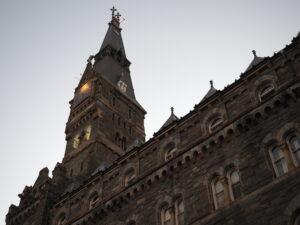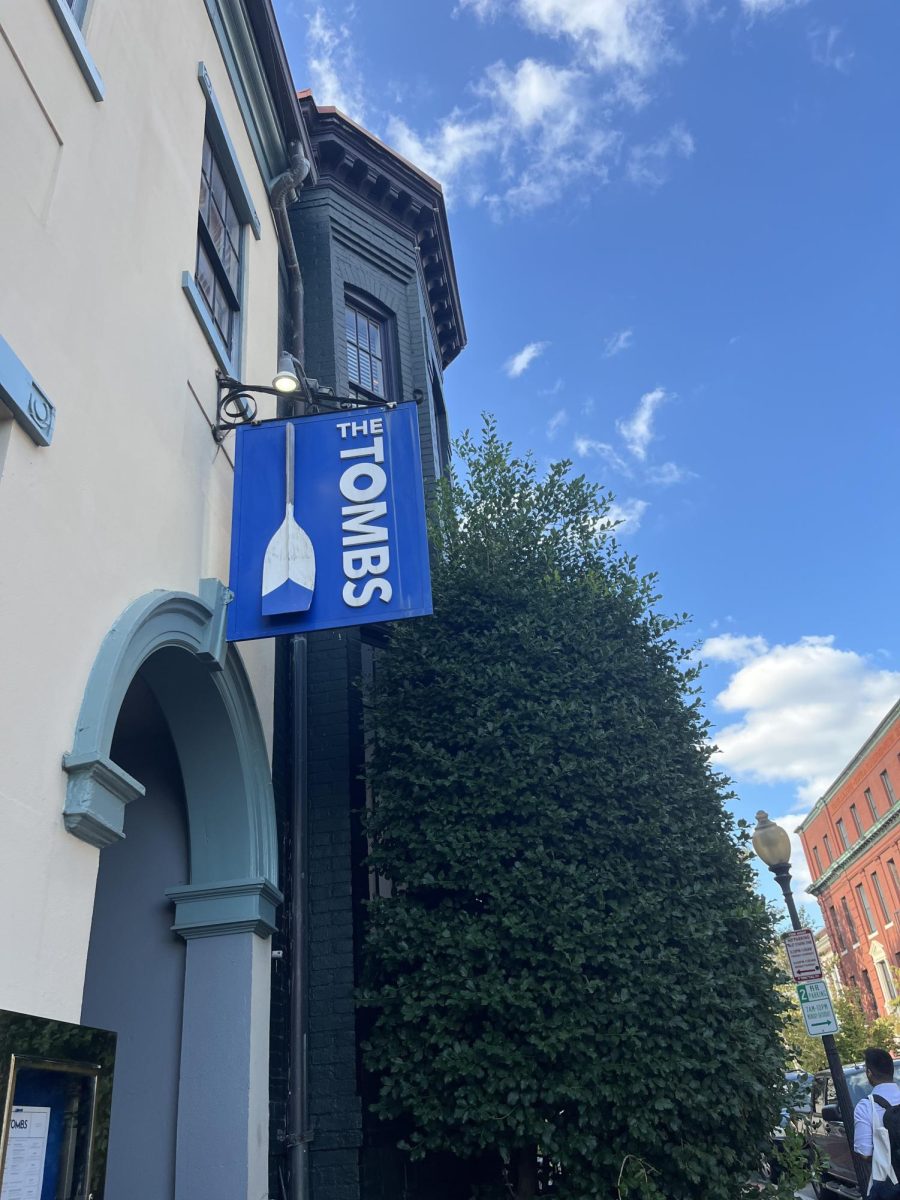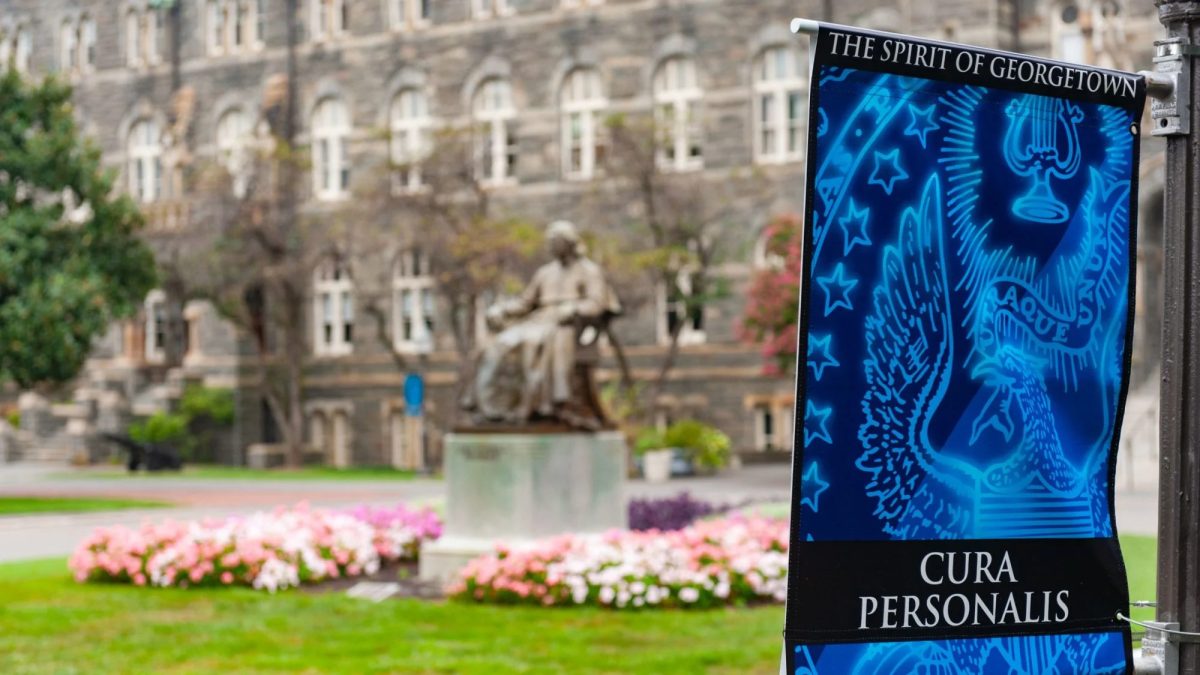The Georgetown University Student Association (GUSA) Senate increased or maintained funding for all but two student activity advisory boards for fiscal year 2026.
The senate passed the final version of the Financial Appropriations Committee’s (FinApp) Student Activities Fund (SAF), GUSA’s annual budget that funds student activities. The $1.3 million budget grants 84.4% of the initial funds requested by all recipients, an increase from the 79.27% of requested funds granted for FY2025 and 77.26% for FY2024.
Senator Han Li (CAS ’27), Vice Chair of FinApp, said the committee was able to increase funding for most boards because of the close work between FinApp liaisons and each of their respective beneficiaries.
“Increased fulfillment is the manifestation of a highly engaged FinApp team which worked diligently to communicate the Committee’s perspectives and ideas to boards early on in the application process, long before the initial budget allocations,” Li wrote to The Hoya.

FinApp increased funding for the Student Activities Commission (SAC), the Performing Arts Advisory Council (PAAC) and the Campus Ministry Student Forum (CMSF) and maintained the level of funding for the Lecture Fund, a student organization which invites lecturers to campus, for 2026. The committee also increased funding for boards whose budgets were cut last year, including the Media Board and Outdoor Education.
The budget cut $14,697 in funding for the Advisory Board for Club Sports (ABCS) and $1,750 for the Georgetown Program Board (GPB), which was requested by GPB.
The allocation for ABCS, which oversees club sports including ultimate frisbee, soccer and running, was cut from $309,697 to $295,000, fulfilling 83.1% of the board’s initial budget request for 2026.
Tina Solki (MSB, SFS ’26), Chair of FinApp, said funding was cut because funds were being used by the overarching advisory board rather than by individual clubs and because teams did not use their entire budget in FY2025.
“ABCS’ cut wasn’t punitive — it came on account of a significant amount of leftover funds in teams’ accounts at the end of the fiscal year, which indicated that a cut might represent a movement towards equilibrium,” Solki wrote to The Hoya. “We also recommended they decrease their spending on cross-team, ABCS activities, which also accounts for a good amount of the decrease.”
The only two boards to receive the full amount of requested funds were GPB and the CSJ.
The CMSF advisory board, which oversees religious organizations on campus, received $34,000 after initially requesting $40,700, a 56.5% increase from last year’s budget request of $26,000.
Eimon Aung (SFS ’25), the CMSF treasurer, said the request increase seeks to accommodate the growth of the CMSF and the particular needs of each club represented by the board.
“Our request was primarily driven by the unprecedented surge in participation across all of our communities in recent years,” Aung wrote to The Hoya. “Many of our organizations (such as HSA, JSA, MSA, BuSA, among others) saw double the amount of attendees at their events, especially during major holidays.”
“And adding to the need for our funding to reflect this growth is the fact that many members of our communities have dietary needs/restrictions that we need to accommodate for at our events,” Aung added.
Saara Bidiwala (CAS ’26), the president of the CMSF Advisory Board, said the increase in funding corrects underfunding in past budgets, which will allow them to better support Georgetown’s faith communities.
“The entire CMSF Executive Committee worked extremely hard to advocate for this increase due to the limitations insufficient funding has placed on our student organizations the past couple of years,” Bidiwala wrote to The Hoya.
McDonough Student Advisory Board (MSAB), the advisory board for business-related clubs funded by the McDonough School of Business’ dean’s office, received funding from the Student Activities Fund for the first time. FinApp allocated them $3,968, fulfilling less than 10% of their requested $40,100.
Li said this level of fulfillment was due to MSAB’s existing source of funding and policies that require equal opportunity access for students.
“The Committee is actively working to bring MSAB clubs into compliance with the University’s open-access policies; in particular, the existence of highly competitive ‘applied membership’ tiers in many MSAB clubs was a point of contention within Committee deliberations,” Li wrote. “The Committee has decided to use the upcoming academic year to work with MSAB and expand access to programming within their member organizations.”
The budget also allocated the second half of the GUSA Diversity Fund, a fund totaling $30,000 launched in 2024 to sponsor cultural organizations’ events on campus.
Solki said throughout the 2025 fiscal year, the diversity fund sponsored events including Mx. Georgetown, a student-run drag competition, a Holi celebration put on by the Hindu, Buddhist and Jain Student Associations, and a Luau hosted by the Hawai’i Club.
Solki said by prioritizing transparency and intentional allocation, FinApp was able to build a budget for student activities that supports campus organizations far into the future.
“We wanted the SAF to go towards durable improvements that’d benefit the student body for year after year to come,” Solki wrote.




















